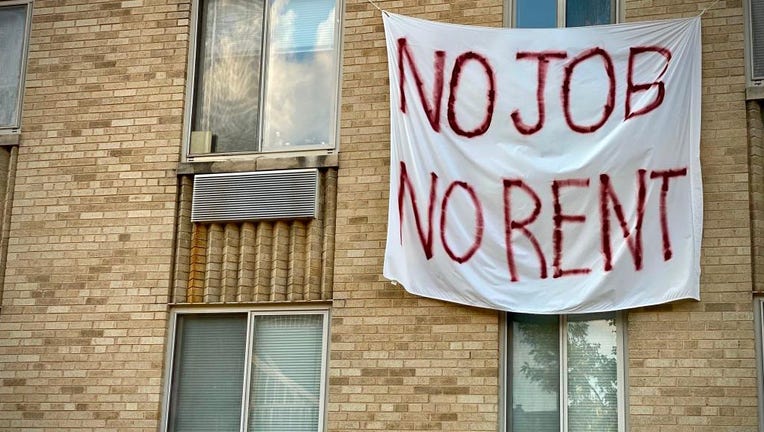Contra Costa County supervisors extend eviction, rent increase moratoriums

FILE ART (ERIC BARADAT/AFP via Getty Images)
MARTINEZ, Calif. - The Contra Costa County Board of Supervisors has extended protections for residential tenants who can show they are missing rent payments due to financial hardship caused by the COVID-19 pandemic.
But beyond Tuesday's action, supervisors said they want to see next week some options and numbers for how to best provide for financial assistance and legal aid for Contra Costa County residents who either are fighting to stay in their homes or who feel they have to take legal action against landlords.
Much of the financial aid would come from a $4 million pool of Community Development Block Grant money.
Supervisor Federal Glover also said he wants landlords -- many under financial pressure themselves because of the many tenants behind on rent -- to be able to seek help from the CDBG funding.
Supervisors said they want that renters' aid to help people beyond the narrow scope of those helped by Concord-based Shelter Inc., which has been working for many years to help people threatened with homelessness.
Several public callers not only urged the extension of the existing tenant protections, but asked county officials to do better in getting the needed information out to the public about how they can get help.
The supervisors will get a formal report at their Sept. 29 meeting about the various options. In the meantime, the supervisors voted 5-0 to extend limiting evictions and rent increases in Contra Costa County.
It is the fourth time the supervisors have approved such protections.
The county's previous eviction moratorium was set to expire Sept. 30; the new one runs through Jan. 31, 2021, and covers both evictions and rent increases.
The new urgency ordinance also brings Contra Costa County law more in line with state laws offering eviction and rent increase protection.
Assembly Bill 3088, the COVID-19 Tenant Relief Act of 2020, was signed into law by Gov. Gavin Newsom on Aug. 31. It prohibits unlawful detainer actions against residents with COVID-19-related financial distress for non-payment of rent and other charges due between Sept. 1, 2020 and Jan. 31, 2021.
That bill offers some relief for residential landlords as well, converting back rent payments into "consumer debt" and allowing landlords to pursue collecting that money through small claims courts, beginning in March.

